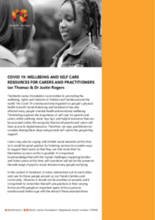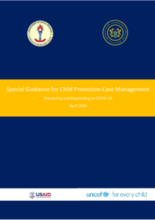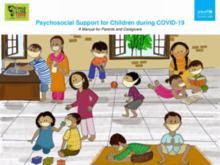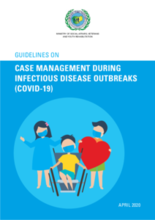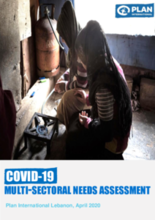This section includes resources and tools for mental health and psychosocial support during the COVID-19 pandemic.
Displaying 31 - 40 of 65
This briefing explores the importance of self-care for parents and carers, whilst outlining some ‘top-tips’ and helpful resources that can be accessed online.
This study investigated depressive and anxiety symptoms among students in Hubei province, China, which can help optimize interventions on the mental health of children for stakeholders in all countries affected by COVID-19.
This webinar addresses the risk factors of the current crisis on youth and families, the challenges that professionals like therapists, psychologists, and social workers are facing; and tips and strategies to manage the emotional impact of COVID-19 on youth, families, and professionals using telemedicine and other novel techniques.
In this blog post, Anna Riatti - coordinator of the UNICEF Refugee and Migrant Response in Italy - describes how UNICEF is supporting refugee and migrant children in Italy in light of the COVID-19 crisis.
This Guideline aims to further provide technical guidance to child protection workers in Ghana to better respond to child protection risks during the COVID-19 pandemic through case management, including psychosocial support.
In the context of COVID-19, this manual focuses on psychosocial care of children and prevention of violence in spaces where children stay (child care institutions, families, temporary isolation facilities, NGO shelters, etc.)
This Guideline aims to further provide technical guidance to child protection workers in Cambodia to better respond to the child protection risks during a COVID-19 pandemic through case management, including psychosocial support.
This report presents insightful findings on the effects of the COVID-19 outbreak in Lebanon, highlighting data collected on COVID-19 knowledge, health, WASH, protection, education, food security and livelihoods, shelter, movement and digital access.
This brief comment from the Lancet stresses the need for sensitive and effective communication about COVID-19 for children.
This advice from Public Health England is to help adults with caring responsibilities look after the mental health and wellbeing of children or young people, including those with additional needs and disabilities, during the coronavirus (COVID-19) outbreak.

